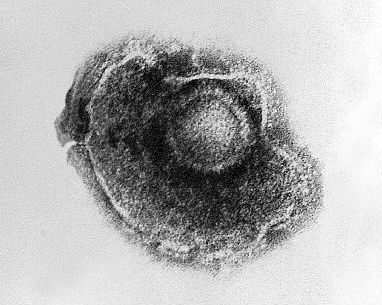Chicken pox, caused by the chicken pox virus, is an infection that involves the development of a very itchy red rash all over the body, and includes flu-like symptoms too. It occurs mostly in children and on rare occasions, in adults.
An Introduction To The Chicken Pox Virus
Chicken pox is a mild but highly contagious disease caused by the Varicella-zoster virus. Nowadays, children can be protected from the chicken pox virus by the Varicella vaccine, which first became available in 1995.

Effects Of The Chicken Pox Virus – Some Notable Symptoms
The key symptom indicating chicken pox is the appearance of red spots on the body. These spots turn into liquid-filled blisters and are extremely itchy, and eventually, they dry and fall off. This process is called crusting and scabbing.
The incubation period of chicken pox is around 10 to 21 days. Before the rash appears, you could develop flu-like symptoms like fever, malaise, sore throat and stomach ache as mentioned before. The rash becomes visible after 1 or 2 days.
During the course of the disease, new spots appear every 5 to 7 days, and each crop of spots goes through the same cycle. The rash tends to appear on the upper back, face and neck, and then spreads to the rest of the body.
In many cases, children can also have other symptoms for 1 or 2 days before the rash appears. Some of these symptoms include:
- Low-grade fever (38.3°- 38.8°C)
- A sore throat
- Stomach ache
- Malaise, irritability, and loss of appetite
These symptoms of chicken pox appear 10 to 21 days after the individual comes into contact with someone who’s carrying the disease.
The Causes Of Chicken Pox
Chicken pox is an airborne infection, so you can contract the disease if you are exposed to an infected person coughing or sneezing around you. You can also get infected if you come in contact with the liquid that fills the blisters of an infected person.
People with chicken pox usually carry the disease until their rashes have dried, crusted, and scabbed over. You can read more about chicken pox causes here.
Diagnosing The Condition
You should see a doctor as soon as you suspect that the signs you are seeing could be chicken pox. This is because a doctor can easily diagnose chicken pox by examining the rash and by noting the presence of accompanying symptoms.
If there are visible key symptoms like mild fever, followed by an itchy rash, blisters and scabs, the condition can easily be diagnosed as chicken pox. Laboratory tests can help confirm the diagnosis too.
Treatment Options You Can Try
Treatment for chicken pox mainly focuses on alleviating the symptoms, while your own immune system fights the virus and clears it out of the body. Here are some things that are recommended for you if you have been infected by the chicken pox virus:
- Trim your fingernails or cover your hands with gloves to prevent scratching, as this can lead to scarring and other secondary infections.
- Apply wet towels to the skin to ease the itchy sensation.
- Keep your skin clean by washing it regularly, and then apply lotion (like calamine lotion) to soothe the itching.
- Wear cool, light, and loose bedclothes.
- Never use aspirin to reduce the fever, as this could cause serious complications involving the liver and brain. Instead, you can use Acetaminophen i.e. paracetamol.
Your doctor will prescribe the antiviral medication Acyclovir within the first 24 hours of the rash as chicken pox treatment.
How To Prevent The Condition
A Varicella vaccine is now available to help protect children from chicken pox. The chicken pox vaccine should be given when the child is 12-15 months old, followed by a second dose at least 3 months later to up to 4 years of age.
Sometimes a child may still get the disease despite being vaccinated, but in such cases, the symptoms will be milder.
Chicken pox is difficult to avoid, as the disease is airborne and very contagious. Its spread can be prevented by isolating the patient. If you think you or your child might have been exposed to anyone with chicken pox, you should see a doctor without fail.
Immediate preventive measures taken could preempt the disease or, at least, lessen the severity of the symptoms if it does occur. There are a few other methods of chicken pox prevention that you can use to protect yourself from contracting the disease.
If you have been infected with the chicken pox virus, it is ideal to take the prescribed medication and follow the recommended soothing measures, while also taking plenty of rest.